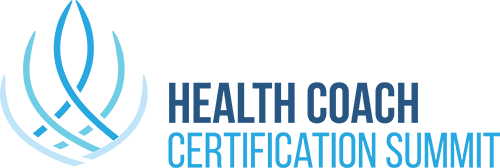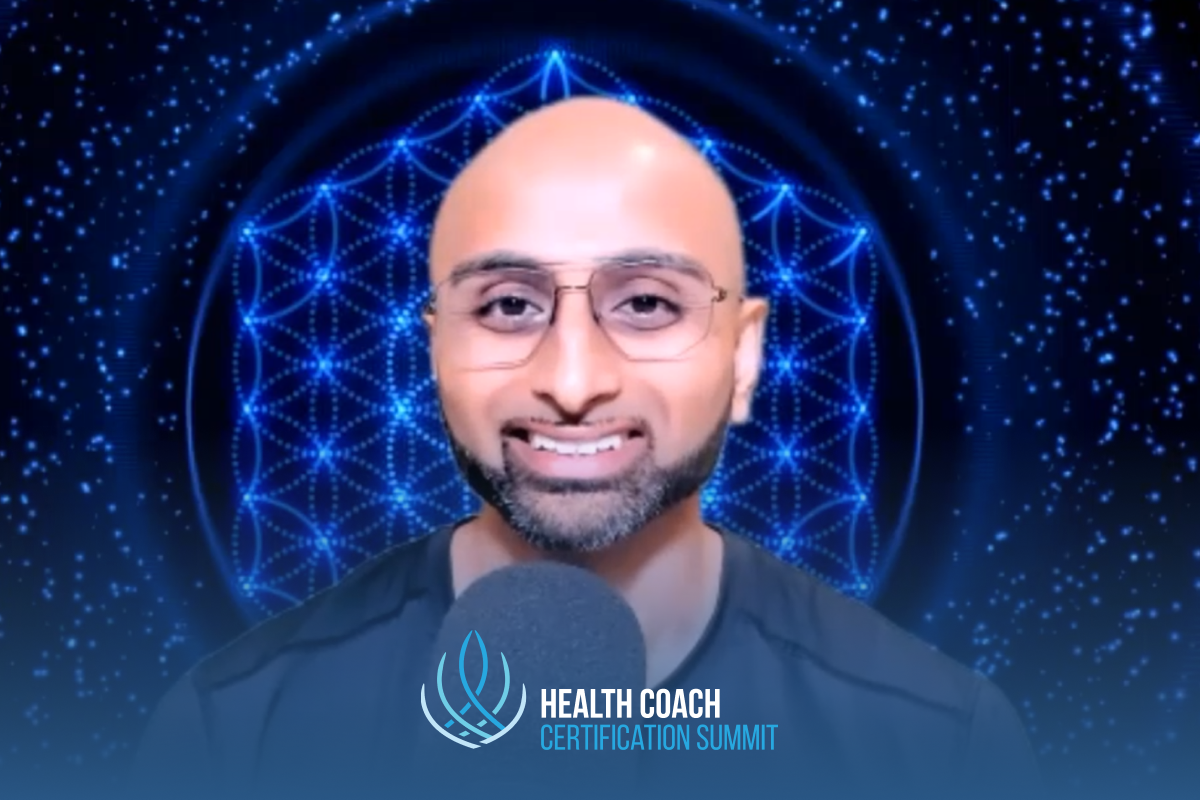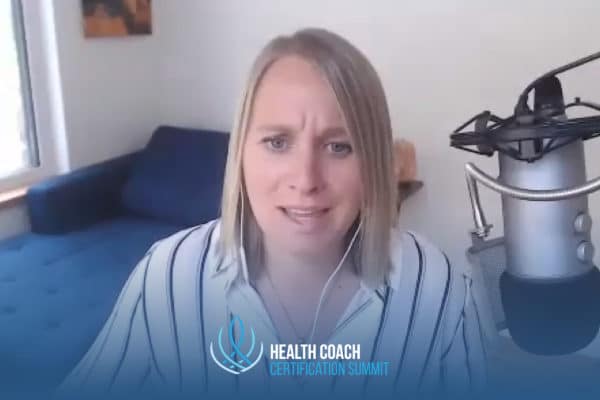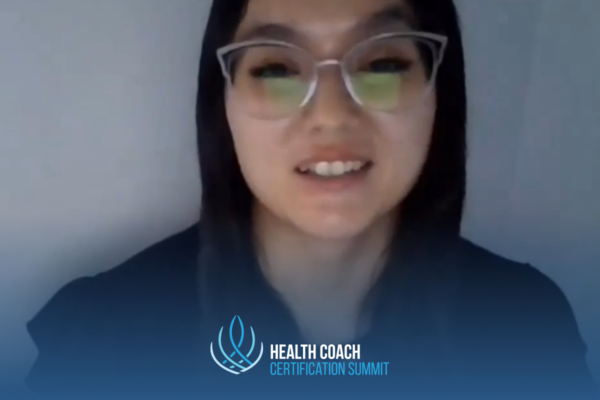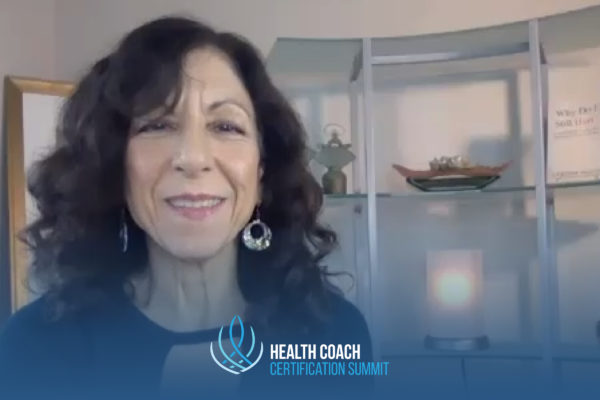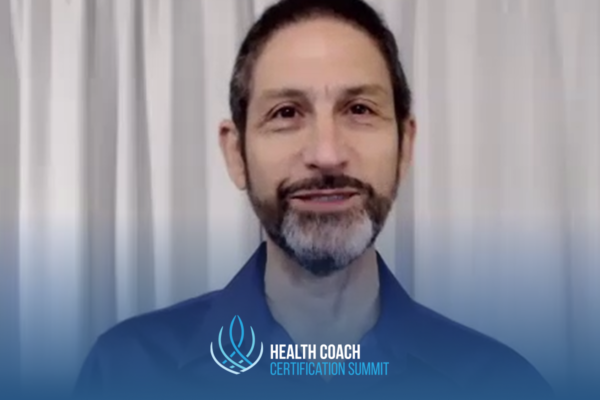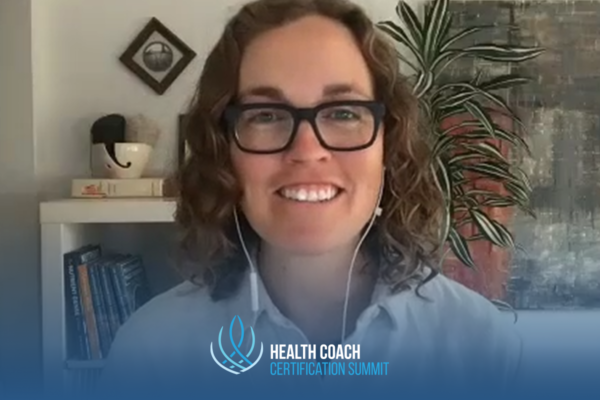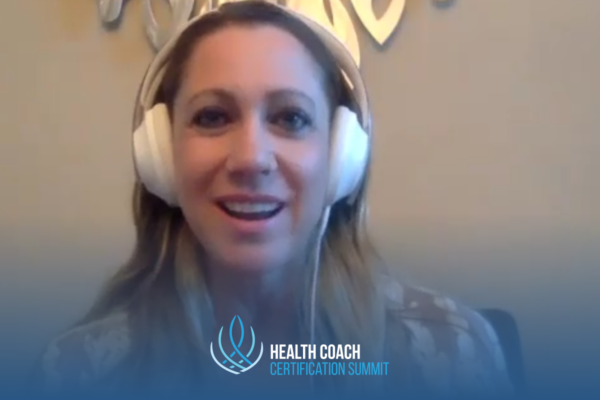Join the discussion below
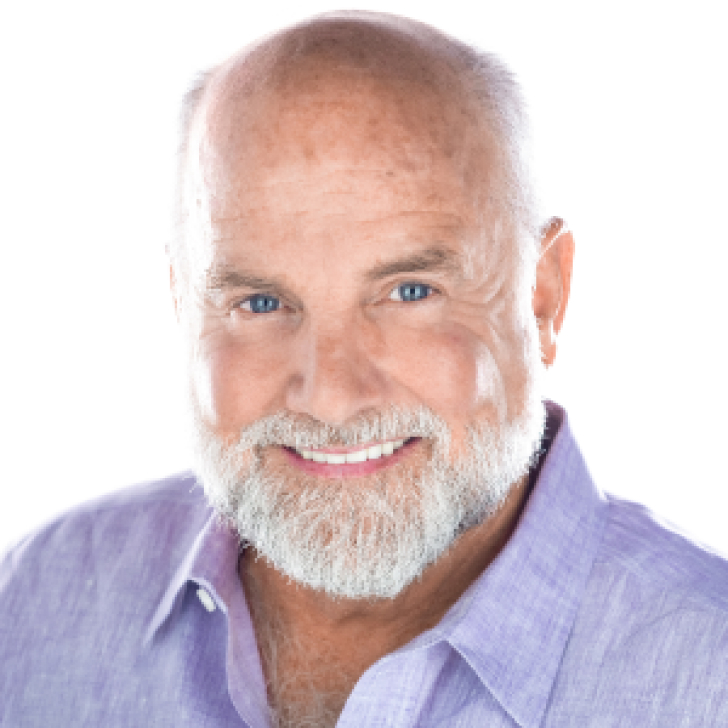
Reed Davis, Triple-Board Certified Holistic Health Practitioner (HHP) and Certified Nutritional Therapist (CNT), is an expert in functional lab testing and holistic lifestyle medicine. He is the Founder of Functional Diagnostic Nutrition® (FDN) and the FDN Certification Course with over 3000 graduates in 50 countries. Reed served as the Health... Read More
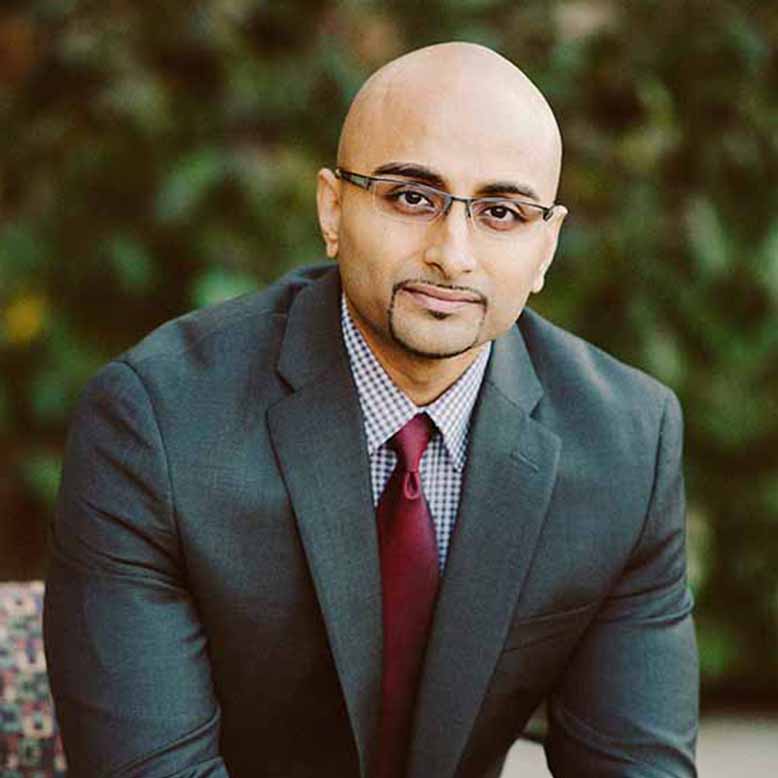
Sachin Patel is a father, husband, philanthropist, functional medicine practice success coach, speaker, author, breath-work facilitator, and plant medicine advocate. Sachin is convinced that “the doctor of the future is the patient” and he has committed himself to helping others raise their consciousness, activate their inner doctor, and initiate their... Read More
Learn how to be a coach and help patients take their first step on their journey back to health by activating their inner healer! Learn how to mentor and impart these valuable information to your patients: The doctor of the future is the patient Health begins at home Nothing can fix your body better than it can fix itself True health requires an exploration of the mind, body, and spirit
Related Topics
Alternative Medicine, Autoimmune Disease, Autoimmunity, Chiropractic Practice, Chronic Fatigue, Chronic Illness, Digestion, Digestive Issues, Energy, Fibromyalgia, Functional Medicine, Gluten, Gut Health, Health Coaching, Hormone Health, Joint Pain, Lifestyle Changes, Longevity, Mental Health, Mindset, Mold, Muscle Health, Nutrition, Rheumatoid Arthritis, Skin Health, Vitality, WellnessReed Davis, HHP, FDN-P, CMTA, CNT
Welcome back folks. I’m really excited today to introduce not only a wonderful practitioner, but a good friend of mine, really excited to introduce Sachin Patel Patel of Perfect Practice. He’s gonna share his wonderful ideas on how you can help even more people with your healing services in person or virtually. Now this is for you, whether you’re already a health coach, or allied practitioner, or even if you’re just starting off and don’t have any customers yet, you want to listen in very closely. Sachin Patel and I have worked together for several years now. We met at a conference a lot of years ago, and he’s helped hundreds of practitioners create their practices centered around work, life balance. And I’ve preached this for many years that you gotta live a lifestyle that your clients are gonna wanna follow. He’s like the consummate professional when it comes to that. In 2018 Sachin Patel was awarded the Peter Jenkins award as the functional medicine practitioner of the year, and just last week received his second Clickfunnels Two Comma Club award for generating over seven figures in online sales.
Of all the people we could have here to talk about this subject, he’s the number one guy. His wisdom is timeless. You can listen to him over and over and walk away with something different every time you do. He’s the author of the bestselling practice management book, Perfect Practice, right here on my desk. And he hosts an insightful podcast by the same name. You can look that up. Of course, we’re gonna be putting a lot of information about Sachin Patel in the show notes. But I just want to tell you, before we bring Sachin Patel on, for the last five years Sachin Patel has been training practitioners all over the world and teaching them how to effectively communicate their value, run efficient practices and leverage technology to free up human capital so that you can live and they can all live long and loving and laughing lives and have a good time doing what we love to do. So with the world sifting under our feet, I can assure you that Sachin Patel’s calm and timely insights will help you grow personally and profession. Please welcome my good friend Sachin Patel Patel. Thanks for coming on Sachin Patel. Say hello to the group and I will give you some moments to—
Sachin Patel
Well Reed, thanks for having me
Reed Davis, HHP, FDN-P, CMTA, CNT
A little more on your background. Go ahead.
Sachin Patel
Thank you. Thank you, Reed. I appreciate you having me on, and I’m excited for our conversation today. It’s been a great ride so far getting to know you over all these years and you continue to uplevel the game, and this is another example of that. So I’m thrilled and it’s great to see the direction that health coaching is going in and more and more people are jumping on board in this amazing profession and I’m excited to propel it forward even faster.
Reed Davis, HHP, FDN-P, CMTA, CNT
Yeah, you’ve been a leader from the day I met you. Trained as a chiropractor, but understanding that might be really magnificent in some ways, possibly limiting in some ways. You also are one of my homeboys from Toronto, Canada. So that’s another amazing coincidence. Even under these times of trouble, we’ve been able to hang out in Hawaii early this year, work with a mastermind group and just lift everybody up, you know? So when we cooperate, that’s what happens. How did you go from chiropractor to this amazing health entrepreneur? Well, you know, part of the story…
Sachin Patel
Well, yeah, great question. It started way back almost 12, 13 years ago now. So in my second year of chiropractic practice, practicing out of Norwood, Ohio, which is just a little suburban side of Cincinnati. I was there working in an active release practice, we’re helping athletes, professional athletes, Olympic athletes, amateurs, weekend warriors, helping them recover from chronic injuries and strains. So the people that I was working with were relatively healthy, like the healthiest of the healthiest people are getting hurt doing athletic activities. So my population base at that time was not necessarily dealing with a whole host of other chronic and degenerative diseases. But one day I was on the news.
So being, I guess, good at what we did we gained notoriety in our community that landed us on the news and they did a story about a lady named Connie who had elbow pain. She had chronic tennis elbow issues, had surgery, physiotherapy, nothing worked. Came to see us and within weeks she was feeling better. So that was the story. But that night, when the story ran, we had dozens and dozens of people calling the practice and scheduling appointments. As these people started coming in, none of them, except one lady, had elbow pain. The other people that started coming in had chronic health issues like fibromyalgia, chronic fatigue, rheumatoid arthritis, autoimmune conditions, stuff that I kind of take for granted now in terms of what to do. But at that time I had no idea what to do.
As I started asking questions, I also realized that not only did I not know what to do, but their medical doctors and specialists and people that they were seeing were kind of stumped as well. That didn’t mean that they weren’t trying, that they aren’t good people, but they had exhausted all of their tools. So then I basically turned all these people away because I didn’t know what to do with them, but it was gutting not knowing where to send them. And right around the same time, I somehow got added to an email list from Dr. Ron Grisanti. He runs a program called FMU and I took that program really for myself. I said, “Wow, like if these people have nobody to help them, and there’s nothing that I can do, or I don’t know where to send them to, what’s gonna happen if me, myself or a family member develop something like this? What happens to those people?” That’s what prompted me to take functional medicine training.
As a result of that, I cleared up some health challenges that I didn’t know I had because I was just dealing with them my entire life, digestive issues, chronic and kind of persistent acne and challenges that I thought I had exhausted every option, every topical lotion and potion or pill, or whatever. But it wasn’t until I started making the lifestyle changes and the nutritional changes, cutting out gluten, dairy, all of these things, that my personal health transformed. And I said, “Wow, I’m somebody who’s relatively healthy and I’m feeling this much better. What could this do for people who are really unwell and not doing some of the other things that I was doing?” That’s when it sparked an interest in me to pursue this further. I approached my boss at the time she wanted nothing to do with it. She was—and rightfully so. She was a great diagnostician and clinician in soft tissue injuries. She didn’t want to go back and learn nutrition and lifestyle and all of these other things, because she had already developed mastery in one area in her life. So I respected that, but when it came time for me to take over the practice, I decided to go in a different direction for that reason, because I wanted to pursue a different way of helping people.
So my journey in functional medicine started there and then I started working for somebody else and it became an independent contractor. Basically as an independent contractor, I took over these two practices and had strong work ethic and great mentors and training at the time. So I was able to take those practices and build two of their more successful practices in their company. But the company started making bad business decisions and basically ended up owing me about $60,000. So they wrote my contract in such a way that my systems and processes broke their systems and processes, and they couldn’t afford to pay me anymore so they were writing the IOUs every month. At that point, around $60,000 in, I had to make a decision and I stepped away from that.
When I did that, I committed to starting a practice and a business that would never put the owner in the position that they were in and would never put an associate or team member in the position that I was put in. I know what it feels like to have sleepless nights not knowing where your next paycheck is gonna come from, knowing that you’ve done the work and earned the money, but it hasn’t been paid to you, so the frustration that gets associated with that. I know what it’s like to have familial challenges and relationship challenges when you’re under financial constraints and stress. I had to deal with all of that and under those conditions, I started The Living Proof Institute as a very low overhead, or what I call a smart overhead model, that allowed for expansion and growth without bankrupting the company in a sense. So we created a new practice style, and then I’ve been teaching that to practitioners ever since.
Reed Davis, HHP, FDN-P, CMTA, CNT
It’s a wonderful story. One thing that’s really evident is your work ethic. I was gonna ask you about your dedication, where that comes from? Did you have your own health challenges? A lot of people come to this business ’cause they were sick and they had to fight and work really hard to get over it. Now they want to help others do that. Did you have some? Anything going on with your own health? Was it more just ?
Sachin Patel
Yeah, you know what? I didn’t realize I had health issues until I got rid of them. So for me, I had dealt with chronic acne and I just thought, “Hey, that’s my skin. That’s who I am.” But it wasn’t until I gave up dairy that my acne disappeared.
Reed Davis, HHP, FDN-P, CMTA, CNT
Wow.
Sachin Patel
And then the other thing I dealt with was chronic aches and pains. So my muscles, mostly my joints, would be achy. So I’d wake up in the morning, and my entire life I would wake up stiff every single morning—in my joints that is. [Laughing] As a result of that, I would end up having—it would take me a good 10, 15 minutes just to kind of loosen up. I had put up with that. I just dealt with that not knowing that there was some underlying issue causing it for me. It turns out it was gluten that was causing it. So once I cut out gluten, the joint aches and pains went away. So those were the two big things for me initially that I’d given up and changed and that started improving my digestion.
I didn’t realize this because who really thinks about their poop all the time, right? There is a point in your life where you don’t think about these things. You just go about your day. My digestion started improving, my energy started improving. I went from being a late morning person to being an early morning person. My whole life I just convinced myself and told myself, “I’m not a morning person”. That was my excuse for being tired every morning. Once I actually started making these changes, those subtle issues started going away. And what I realized is that we don’t have to be broken to do something about our health, right?
Reed Davis, HHP, FDN-P, CMTA, CNT
Yeah.
Sachin Patel
It’s great that people have those stories, but we don’t have to be completely down and out to want to be healthy. That’s unfortunately what a lot of people wait for. They wait for their health to deteriorate and just consumers in general, and then they do something about it. I want to create a health model and that’s kind of our mission is to create a health model where people who are relatively healthy and vital are pursuing further health and further vitality and viewing health as a lifelong journey, as opposed to an event.
Reed Davis, HHP, FDN-P, CMTA, CNT
Yeah. I love—I learned from a chiropractor once an expression or analogy that most people—if the red light on their dashboard comes on, “Oh boy, I gotta take the car in right away.” Like they’ll take their car in to get fixed. But if it’s an ache or pain, they’ll wait months hoping it maybe goes away. They’re really not following their body signals enough. I mean, symptoms aren’t everything. So with The Living Proof—now what’s the basic philosophy behind The Living Proof Institute?
Sachin Patel
Great question. So our philosophy is essentially that if we can find the cause, we can teach people how to become their own cure. We can teach people how to activate their inner healer from the comfort of their home. Our philosophy is that nothing can fix your body better than it can fix itself. If we teach people how to essentially activate these healing mechanisms and centers in their body, that the majority of their health challenges will disappear because, as you know Reed, the body is constantly fighting for or striving for homeostasis. So it’s very rarely that the body’s the issue. It’s usually the inputs into the system that create a problem. A simple analogy I can give you is our traditional medical system is kind of set up to fix the car when it’s broken, right? So we take the car to the mechanic when it’s not working and not functioning properly, but if you’re not driving the car properly, then that’s gonna lead to more mechanical problems.
But it’s also going to lead to a poor user experience. So we teach people, “Hey, let’s just for a moment, assume it’s not your body that’s broken. Let’s for a moment assume that nobody’s taught you how to use your body and unlock its magical tools. Let’s see what that—let’s explore what that looks like.” Then we start focusing on sleep. We start focusing on breathing. We start focusing on the connection with nature and source and balancing our electromagnetic field by grounding ourselves and really teaching people how to—and encouraging them and coaching them through the process of activating their own inner healer. And then, and only then does it make sense to do the fancy stuff. We find that most people aren’t doing the basics and it ends up leading to hundreds or thousands of dollars of them searching outside of themselves for answers when the answers are actually inside of them.
Reed Davis, HHP, FDN-P, CMTA, CNT
Is that what you mean by “the doctor of the future is the patient”? That’s a pretty well known quote from Sachin Patel Patel. The doctor of the future is the patient. So I’m hearing that you’re talking about the innate.
Sachin Patel
Exactly. The doctor of the future is the patient. If we look at the direction health is going in, health is becoming decentralized and democratized. So it used to be such that to get the information that your doctor has, or your clinician has, it used to take years and years of being in school that only select people got to learn this information. Only select people who are deemed sufficient in their academics and grades were allowed to learn what was taught in medical school. But now with the internet and technology and the decentralization of this information, anyone who wants to learn this information can learn it. So the information is now available to people essentially for free. But what people now need to know is what part of this information is relevant to me? What part of this information do I need to actualize and actually do for myself to get the result that I’m looking for?
This is where there’s a huge need for coaching, because if people can doctor themselves, that’s great, but they can’t coach themselves. A coach is a third party that helps us find our blind spots, that helps us reach a little bit higher, that helps us identify the two millimeter shift that we need to take in our thinking, in our actions, in our bedtime, in our wake time, in every little thing that we do, that’s gonna help us just find that next level. Because as one of my mentors, Tim Grover said, “There’s always another level.” He was Michael Jordan’s personal coach and he did all of his training and exercise programs and everything for him. Michael Jordan had a coach, right? He had a coach his entire career. In fact, the funny story just surrounding that is that Tim Grover wrote a letter to every single Chicago Bulls player except Michael Jordan. The only person that responded to his request was Michael Jordan, because the best are always seeking for that edge. They’re always seeking to be better.
Reed Davis, HHP, FDN-P, CMTA, CNT
Yeah. That, and the fact that Phil—I forgot the name of the coach all of a sudden—but yeah. Yeah. That didn’t help or hurt much Jordan’s career. Winning championships under one head coach. So everyone needs a coach, like you say. So you’ve been coaching practitioners, health coaches, other chiropractors, even medical doctors and things. Let’s talk a bit about the health coaching world, ’cause that’s most of our listeners today. Why do you think there’s been such an explosion in the— like for this event, I was able to get 30, 35 coaching programs to come and speak. I got turned down by a few, I don’t know why. And others, I just couldn’t get ahold of. So it’s amazing how many programs there are out there. When I started, I think we were one of the only ones. Dr. Ron, who you mentioned was there and just maybe one other person. Also a chiropractor, by the way. But now there’s 40, 50. I don’t know how many there are, but why do you think that explosion is taking place?
Sachin Patel
Well, I think as people become their own practitioners or doctors, let’s say, and their own inner healers, the need for a coach has significantly increased. If we look at our healthcare system right now, one challenge that we see is a huge incurrence in costs. Doctors have really high salaries, so to speak, right? Or the cost for a doctor’s time can be extremely high and a person might not need a doctor. The requirements for their health—’cause here’s the thing, many issues that people have are caused by behavioral problems, not medical problems. So it’s the behavioral problems that require a coach. It’s the medical problems that require a medical doctor. Or chiropractic problems that require a chiropractor.
There’s always gonna be a need and time and place for those services but the types of challenges that people are facing right now, we’re realizing chronic diseases are caused by chronic persistent behavioral problems. You need a coach who can help you modify change and replace certain behaviors in order for you to get healthy. So that’s why I feel like there’s a huge explosion of this market and there needs to be, because leading up to this point, we’ve been treating everything as a medical problem, not a behavioral problem. Once the public kind of wakes up to that, then they’re going to be actively seeking coaches because that’s the right person to solve the problem.
Reed Davis, HHP, FDN-P, CMTA, CNT
That’s really a good answer. Why are they seeing health coaches? ‘Cause they need one and the doctors aren’t providing that kind of education and training and accountability and all—the prototype of programs that a health coach can. Although more and more doctor’s offices I think are hiring good health coaches, which is great for business. Oh, Phil Jackson was the name of Jordan’s coach that I was trying to remember. So, what do you see as—like you said, the doctor of the future is the patient, meaning we can heal ourselves. We’re finding that we can overcome our own problems and I would have to say Sachin Patel, probably I’ll just guess at half, at least half, more than half of the people who come to the FDN course, for instance, had a serious health problem or have one, and they’re not getting any answers in standard medicine.
Standard medicine for some reason just seems to be lagging behind. They just like to treat symptoms. That’s a good thing. No one wants to be in pain or have whatever it might be. Or they’re managing the disease. So I kind of see why people want health coaches who are actually going to look for underlying causes and conditions and make you work on those behavioral issues and things. That’s why they want to go get certified. Now that they’ve overcome their own thing, they want to go help others. You said you had your own challenges and that was influential, but I’m kind of seeing doctors are also now wanting to become health coaches. Have you experienced that? And why is that going on?
Sachin Patel
Yeah, in fact some medical doctors that I coach, one of the first pieces of advice I give them is to get certified in a health coaching program because it actually expands their scope. It expands the tools that they have to help their clients. And in some cases, it can actually be a broader scope of practice or rather it can be a scope of practice that’s more in alignment with the types of services that they want to deliver. So if you’re a medical doctor, let’s say, and you practice in Ontario and you want to provide functional medicine testing or you want to provide nutritional or supplemental counseling, or you want to provide email access to you. None of those services are covered under our socialized medical system. In fact, if you started doing those things as a medical doctor, your license would start being questioned and you might even lose your license because you’re not following the standard of care.
So some of the practitioners that I’ve coached, one of the first steps I have them do is do just that because we want them—we have to ask them first, what is it? What type of services do you want to provide to your clients? If your scope is limiting you or preventing you from providing those services, you’ll never be able to create a business that aligns with your values and being a coach and helping people eat better, think better, move better, and doing that remotely. If these are the things that align with you, then we need a scope of practice that enables you to do that. So that’s why I see a lot of practitioners moving in that direction. It just makes sense. Here in Ontario as well, naturopaths, for example, can’t order certain labs and they can’t charge case fees and they can’t share testimonials online. So if you’re a naturopath that’s trying to do specific labs or you’re trying to charge a case fee because that’s a better way of managing your case flow and patients and practice, and you want to share testimonials, you can’t do any of that stuff!
So you’re almost signing up to fail from a marketing standpoint because you can’t tap into these things. Whereas if you’re a health coach, now your scope is expanded. Depending on the program you take, you might be able to order lab testing. You might be able to work with via telemedicine, charge a case fee, share testimonials. So now you’re able to do the things that you know are going to add the highest value to your customer and stay in alignment with what your scope or designation allows you to.
Reed Davis, HHP, FDN-P, CMTA, CNT
I think that’s a really good point. People want to be health coaches to help others and to people who are already in the health business, it might seem like kind of a step back or downgrade, but I love the way you put it, to go from a physician to a health coach. But you’d be a licensed physician/health coach and expand—you’re actually expanding. You’re not reducing, but you’re expanding what you can do. Some of the referrals we’ve had from you just been the most wonderful people. They truly have their hearts centered and they just want to do more good in the world. One of them actually gave up his license recently because he said it was too restrictive. It was like handcuffs and he didn’t want the board coming down on him for telling someone to take vitamin C for instance. One of these kind of a thing that we’re running into.
Sachin Patel
Right.
Reed Davis, HHP, FDN-P, CMTA, CNT
Yeah. So let’s turn it to
Sachin Patel
it’s so unfortunate.
Reed Davis, HHP, FDN-P, CMTA, CNT
Yeah. I mean, it’s just kind of nuts really, but what I love is that the people are really kind of in charge. The market is dictating. This is why I think the power of the purse is still very, very, very powerful. Physicians are seeing that people will spend their money out of pocket—especially in Canada, it’s been known or it’s reputed for many, many years that Canadians love their healthcare system until they need to come to the United States for treatment. So they’re just seeing that there’s options here and there’s cash practices and things like that. Let’s talk about that, how to operate a business from that point of view. I mean, you have this amazing book, perfect practice, and you have a course you teach, they can sign up with you for your program and learn. Let’s turn our attention to that. Which came first, the book or the program?
Sachin Patel
No, definitely the program. What I did when I wrote the book was I took some of the best tips and really timeless strategies that I could offer to my coaching clients. I said, “You know what? How do we elevate as many practices as possible? I certainly know in my lifetime, I’ll never be able to personally coach everyone I want to, but if this book at least inspires them and gets them taking action, then it can help me leave a legacy behind and prevent people from making the same mistakes that I did.” So I wrote the book, not as a shortcut, you still gotta do the work. You still gotta climb the mountain, but a smarter path towards getting there. Again, I tried to make the book really easy to read, very practical and inspiring at the same time. It’s stuff that we’ve done in our practice that’s worked, stuff that we train our other practitioners to do that works. Just like anything, times are evolving. So our mentorship is a way for us to continue to help practitioners stay abreast of the latest information, what’s relevant.
There’s been a big transition as we’ve gone through this interesting time period of 2020 as a whole. We’ve been able to help practitioners have some of their best months ever. So it’s been fantastic. I just got a word from one of my clients that they’ve been in practice over 20 years and they had their best month ever last month in the middle of a pandemic. I had another client who had his best quarter ever in functional medicine this past quarter. So despite everything that’s going on around the world, right now is a great opportunity for coaches, for practitioners to really lean into their messages because what the public is looking for right now is leadership. That’s exactly what’s lacking, is that leadership. We have an opportunity and an obligation really to bring what we do to the forefront and help people get as healthy as possible from the comfort of their homes. I mean, that’s what people are looking for right now and this is such a great time for us all to be alive and be of service.
Reed Davis, HHP, FDN-P, CMTA, CNT
Man. You’re so right. I’ll never forget being in the office 20 years ago, and we’re getting into chiropractic offices, nutrition, health coach—we didn’t call it that but [inaudible] and I would tell the patient, “It’s not what you do during the visits. It’s what you do between the visits that matters.” And that became the foundation. Like you say, the comfort of your own home you can do all of this. Well, you and I were on the same call on a zoom call a couple of weeks ago when I was in London with the [inaudible]. And Jeff Bland was there. Jeff Bland is one of the fathers— grandfathers of functional medicine, I suppose you’d call him. He said something very interesting that backs up what you just said.
That was that, “Everyone is going to be exposed to COVID-19.” So what that makes it really important is not necessarily that there’s some vaccine or a thing, but that we lower our own risks. If the doctor of the future is the patient, then what do we do? Lower your risk. And how do you do that? Well just get really, really healthy, right? So that’s the kind of practitioner that you work with, those that are heart-centered like that, that are trying to get people to not have to go to the doctor if possible. Tell us about your program, the Perfect Practice, you could either share some of the ideas and how you help practitioners help more people, expand their horizons, expand their practices, or just tell us what the program entails. If they were to become a coaching—if you were their coach. How does it work?
Sachin Patel
Yeah, absolutely. So, I’ll share this because I think this story kind of encapsulates what our program is designed to do. We always start by putting the practitioner in the middle and putting their health as the number one priority in their practice. So it’s kind of a different approach because most practice coaching services will put the practice first, and it’s all about the numbers of the practice and how much you did in sales and revenue and expenses. What we look at is something completely different. We look at the practitioner first. What’s your HRV? What’s your health like? What are the things that you’re doing on a daily basis that help you become a thicker trunk to that tree? So instead of trying to grow the branches really big, let’s grow the trunk really big ’cause then we can grow all the branches.
As I mentioned in the very beginning when you introduced me, the focus is work, life balance. So we start by teaching our clients to design their dream day. That’s their first exercise. Then we want to teach them how to create a business that wraps around that dream life instead of trying to squeeze a life in around their business. We also really want to focus on what their values are. We build a practice around five freedoms. The first freedom is health. So your practice should never cost you your health, because that would be the irony of all ironies, right?
Reed Davis, HHP, FDN-P, CMTA, CNT
Yeah.
Sachin Patel
The second thing is emotional freedom. Your practice should not cause you to become a miserable person. The third one is time freedom. So you should set up systems and processes in your practice that help you buy back time. The fourth one is geographic freedom, which means that—I believe we have an amazing world to see, and so many beautiful places to travel. And how nice would it be if we could have a business that helps us make a living and earn an income while we’re traveling, but also enables us to keep our feet in the water, should we choose to and enables us to work with clients remotely? So geographic is the fourth freedom, and then the fifth freedom is financial freedom. So we want a practice that basically helps our practitioners achieve all five of those freedoms and in that specific order.
Most times we start with financial freedom as a primary objective, thinking that health and emotional freedom and geographic freedom and time freedom will come as a result of that. That isn’t always the case, but I know if we start the other way around then the financial freedom is inevitable and you’ll have an amazing life to enjoy that financial freedom. Instead of the golden handcuffs that many practitioners feel that they have. So we start with the person, we start with their dream, their vision, and then we teach them automation. We teach them how to leverage technology. We teach them how to become better communicators. We teach them how to become better leaders in their practices, but also in their communities and really become an embodiment of the best version of themselves that they can be. Because if we’re showing up every day as a 10 out of 10, then that allows us to be a 10 out of 10 in other areas in our lives.
If we show up to work as a 6 out of 10 with our own health, because we’re tired, we’re not eating well, or we’re stressed out. We don’t have good tools to manage these things. Then we can’t be a 7 out of 10 as a clinician. We can’t be an 8 out of 10 as a parent. We can’t be a higher than a 6 out of 10 in anything else in our lives. We really focus on how can we get you to become the best version of you so that you can create the best? So that everything that comes out of you, all the ideas, all the actions, all the steps that you take, all the copy that you write, all the design work that you do is the best version that you can express because you’re expressing yourself at the highest level. So the three legged stool that we build that around is personal development, business development, and clinical development.
People might join us from programs like yours, for example, and they get great support and they get great clinical insights but then we also have a bunch of clinicians that can look at a case and provide additional clinical insights. We do business coaching and office hours where we have about 40 or 50 people on a weekly call. Then we break up into small groups and share our wins and share what’s working, share what isn’t working. So you’re learning in real time. We’re kind of modeling fungal networks, which are hyper nucleated cells that basically learn at rapid speeds. So every week you’re learning what’s working, what isn’t working, and you’re sharing that back into the ecosystem so that like a mycelium community, we’re expanding our knowledge, expanding our reach, and we’re learning faster and faster and faster each and every week and becoming more and more effective. So, in a nutshell—you can tell I get really excited about this—but in a nutshell, we help people build their perfect practice that’s built around their perfect life.
Reed Davis, HHP, FDN-P, CMTA, CNT
Yeah. I know why you’re excited, man. ‘Cause it’s fun too, you know? ‘Cause you’re helping people and you’re doing well with it. It gives you time to be a great father, I know you have a wonderful young man, a son, that you’re incredibly dedicated to that. I see your posts. Like you walk your talk, so that’s a beautiful thing. I respect you so much. What’s one of the hardest of those five things? For people to do. So you got a practitioner or a great clinician, but they’re kind of falling apart or—I don’t know which—what do you see the most of? Like the biggest weakness or something.
Sachin Patel
You know, the biggest weakness is also our biggest strength, which is our mind. And there’s nothing easier to change than your mind. What I tell people is, move the mountains in your mind so you’re only moving mole hills in real life. If you’re not willing to move the mountain in your mind, then you’re going to end up having to move it physically. So becoming the smartest and most effective thinker is super, super valuable, but many people have self limiting beliefs. They have self sabotage as part of their daily pattern. One of the things I wrote in my mentorship group today is that constantly starting new projects is a form of self sabotage and procrastination because if something is finished you have to own that it’s finished. If it fails, then people are dealing with a fear of failure. But if you never finish the project, then you never have to own up to it. So what do you do? You just go and start something new, and then you think that you’re running a business.
But what you’re really doing is you’re running a program of trauma and you’re running a program of that fear of failure. Once people recognize these patterns and we start dissecting, where is this fear of failure coming from? Maybe it was something that happened when they were 6 years old and they screwed something up and somebody yelled at them. Now they’re afraid of failing for the rest of their life. I had a client that this happened to and he had a stepfather that was verbally abusive to him so that made him so fearful of failing. So what did he do? He would not do webinars because if he doesn’t do the webinar, there’s no possibility of him failing. But if he does do the webinar, then he’s going to focus on the aspects where he failed. So you just beat yourself up. So a lot of times it’s addressing these limiting beliefs that people have. It’s addressing the past trauma that they’ve gone through and showing them how it’s showing up in their life and how it’s negatively affecting their business, their relationships and their ability to serve their communities.
Reed Davis, HHP, FDN-P, CMTA, CNT
Yeah, you’re so right. We’ve noticed that as people are—we have a course register. We don’t have a sales team at the course yet, we do very well. We have, of course, registrars. Their job is really just to find out, is this right for you? It’s not a lot different than if—let’s say I’m a health coach and I’m talking to a person about their health. I’m not gonna make any promises till I interview them to find out if I’m the right guy for them. If, number one, can I really help them? And number two, do I want to? Is this a person I could see myself working with? We have other qualifying things of course on our onboarding, but it’s the same with the course. If it’s not right for you, don’t start it ’cause you probably—it’s very robust and you might not make it through. So they have to have a real strong desire to help other people and they gotta be willing to walk the talk.
That’s my two number one things that I want to know. It’s great if they have a computer and all the skills. You have to have modern computer skills and things, but I want to know, do you want to help others? “Yes.” Are you willing to walk the talk? “Yes.’ Okay. That’s a good enough starting point for me. Listen, what else about the program would you like to tell us? Because I know people who have gone through it, doctors where we’ve sorta both trained them. You on the business side and—they’re already a physician and we’ve given them some coaching skills or they’ve hired one or even two of our graduates, you know? So we’ve got a lot of the same constituents. This is just a group of health coaches that we’re talking to right now. What’s your best advice there?
Sachin Patel
I would say that the absolute best advice I can give you as a health coach is to surround yourself with the right people. Jim Rohn is famous for saying, “If you hang around dogs, eventually you’ll get fleas.” So the five people in your inner circle that you surround yourself with is super important. Usually you want to be—I don’t want to say the dumbest person in the room, I don’t like that terminology—but the hungriest person in the room. You gotta be hungry and curious. If you can be curious and hungry, you will be unstoppable and just realize that whoever you believe to be successful, there’s always a story. That person is always willing to share their story and always willing to help you prevent yourself from making the same mistakes they did. So ask questions, be curious, be hungry and success awaits you.
Many people have left clues. I mean, that’s exactly why I wrote my book because not everyone can afford to work with me one-on-one, but guess what? If they start applying the information that’s in the book, then they’re going to start seeing amazing results. If they’re doing those things and then they call me perhaps, and we can take things even further. So surround yourself with the right people, get a mentor, somebody who’s made the mistakes on their dime and their time, and leverage that. One of the things that I tell people is that the closest thing I’ve ever discovered to a time machine is a mentor because they’ve gone through that journey already. They’ve traveled through time and they’re able to tell you what to do and what not to do. That can save you so much headache. That can save your marriage in some cases, because business mistakes and errors cost people their relationships. It can save your business. Mistakes people make can cost them their business. Sometimes it can cost you your pride and dignity. So find somebody who can help you find someone who shares the same values as you, and is willing to share what to do, what not to do. That can save you so much time, money, energy, and emotional trauma as well.
Reed Davis, HHP, FDN-P, CMTA, CNT
Yeah, I totally agree with that. You can have—if you want to make a certain amount of money, you’re not gonna learn it from someone who makes 40 grand a year. You gotta go and talk to that level where you want to be. Well, would you mind sharing who some of your mentors…? Or the thought leaders that you’ve enjoyed?
Sachin Patel
Yeah, absolutely. Well, certainly I look up to you Reed and you’re just a great role model for all of us. I’ll start by definitely recognizing you. You’ve played a very positive role in my life. I look to you for that quiet leadership. So thank you for that. Other people, Peter Osborne has been a great role model for me, and [inaudible], Joe Polish is somebody I really look up to and get to work with personally. I really love Matthew Loop. He’s been a great influence for me. Tim Grover has been a mentor for me, Jim Rohn, Tony Robbins. I mean, there’s so many people. My brother is a great mentor. My parents, the original mentors for me, people who really showed me how to live, love, and really be grateful and appreciative for the things that we have and showed me the importance of family and being there for other people and showing up as a leader, not just showing up for the sake of it, but showing up with a sense of presence. So there’s so many people, and in fact, I’m almost nervous to leave anyone out, so I don’t want to leave anyone out, but the complete list is actually in my book. So you can see that I’m really big on acknowledging my mentors because they’ve played such a huge role in helping me move forward in my life.
Reed Davis, HHP, FDN-P, CMTA, CNT
It’s always the one you left out that calls you the next day. So, last question, if you would Sachin Patel. What one thing do you do every day that you consider to be a big part of your happiness?
Sachin Patel
A big thing for me is being grateful and being present and in the moment, and now that my son has been home for the last—it feels like months now. We’ve been pretty much, yeah, months. Yeah, we’ve been pretty much together the whole time and being curious and role modeling health for him and knowing that he’s watching and listening to everything that I’m saying, that’s really helped me become hyper present and in the moment. I’ll admit that I’m a work in progress, by no means am I perfect. It’s something that he forces me to reevaluate every single day, is how much can I be in this moment? How present can I be? How curious can I be? How much can I laugh things off when things don’t always go as you expect them to?
Reed Davis, HHP, FDN-P, CMTA, CNT
Yep. Well, I appreciate that. I wasn’t looking for anything personal. I thought you were gonna say—someone important. [Laughing] But thank you so much. It’s been a true blessing to know you for all these years and to have you on a summit and the other work we’ve done together, it’s just such a blast to work with a friend who you trust. So we’re gonna say goodbye folks. All the notes will be there so you can get in touch with Sachin Patel, he has an amazing program—he has multiple programs. But if you want some just unsurpassed coaching, he’s the guy, he’s proven it many times over. If you want a copy of these recordings, all these things go in the same show notes. Just buy the recordings, once the event here is over, they either won’t be available or there’ll be more expensive and you won’t get the bonuses. Sachin Patel, we had some of our guests donate some gifts that—I think this whole series is less than a hundred bucks and like there’s $2,500 worth of bonuses. So everyone’s been just so kind and nice and generous with their time and their information and sharing. So glad that you’re part of it. Thank you, man.
Sachin Patel
Well, thank you, my friend, it’s such a great honor.
Downloads
